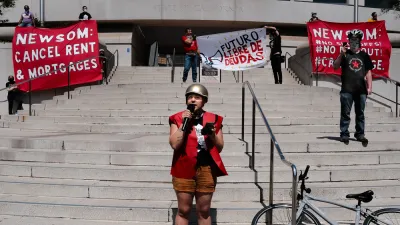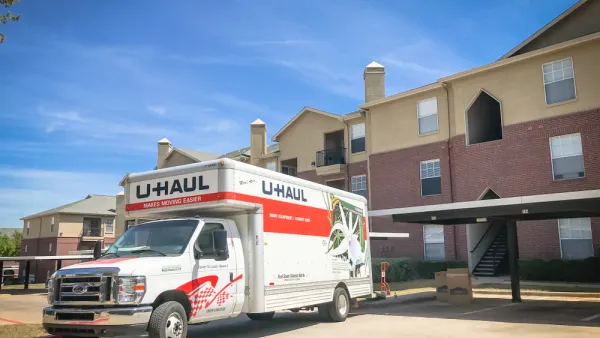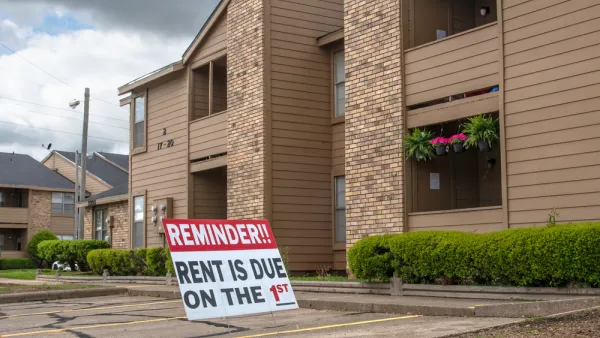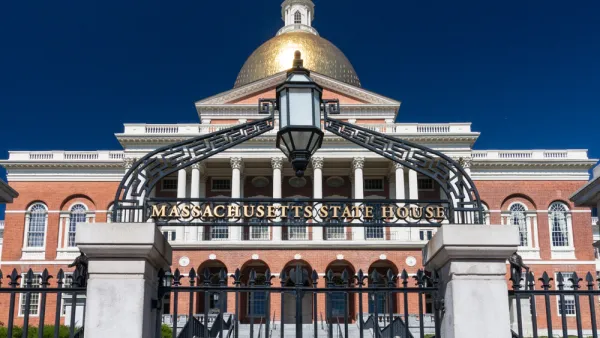Shelterforce spoke with researchers, advocates, lawyers, housing economists, and rental housing industry representatives to understand what that crisis would do to evicted families, public health, and the housing market.

The clock is ticking for Americans who are struggling to pay rent amid the fallout of the COVID-19 pandemic. The $600-a-week enhanced unemployment benefits created in Congress’s CARES Act runs out on July 31. The federal eviction moratorium—which protected about one quarter of American renters—expired July 24. Many of the patchwork state and local eviction moratoriums have already ended, with more expiration dates on the horizon for others. The U.S. Census Bureau’s weekly survey of American households recently found that 26.4 percent of Americans have either already missed a rent or mortgage payment or have little to no confidence that they will be able to pay their next month’s rent on time.
House Democrats moved to extend eviction protections and provide rental assistance when they passed a second, $3 trillion emergency relief package called the HEROES Act in May. But to date, Senate Republicans have not reciprocated.
With tens of millions of Americans out of work and facing their August rent bill without any support from the federal government, advocates are sounding the alarm about a looming mass eviction crisis.
In June, researchers from the Aspen Institute and the COVID-19 Eviction Defense Project calculated that between 19 million and 23 million renters are at risk of eviction by the end of September, barring significant new intervention by the U.S. government.
That would be eviction on a historic scale. In 2016, for example, there were about 3.7 million eviction filings, according to the most recent data from researchers at Princeton University’s Eviction Lab (and likely just as many illegal or informal evictions on top of that). While every renter among those tens of millions evicted in the coming months wouldn’t end up homeless, many millions would be pushed to the street, forced to seek help in already-strained affordable housing, homelessness, and health care systems.
It is hard to imagine the impact of millions of Americans falling into homelessness during a deadly pandemic. It is a crisis that feels like something out of a disaster movie. But the more than 140,000 deaths from COVID-19 so far have shown us that real disaster can strike, especially when crisis is met with inadequate response by those in charge.
So what will happen if the worst comes to pass and upward of 23 million American renters are evicted from their homes? Shelterforce spoke with researchers, advocates, lawyers, housing economists, and rental housing industry representatives to understand what that crisis would do to evicted individuals and their families, and to shelter systems, public health, and the rental housing market.
FULL STORY: What Happens if 23 Million Renters Are Evicted?

Analysis: Cybertruck Fatality Rate Far Exceeds That of Ford Pinto
The Tesla Cybertruck was recalled seven times last year.

National Parks Layoffs Will Cause Communities to Lose Billions
Thousands of essential park workers were laid off this week, just before the busy spring break season.

Retro-silient?: America’s First “Eco-burb,” The Woodlands Turns 50
A master-planned community north of Houston offers lessons on green infrastructure and resilient design, but falls short of its founder’s lofty affordability and walkability goals.

Test News Post 1
This is a summary

Analysis: Cybertruck Fatality Rate Far Exceeds That of Ford Pinto
The Tesla Cybertruck was recalled seven times last year.

Test News Headline 46
Test for the image on the front page.
Urban Design for Planners 1: Software Tools
This six-course series explores essential urban design concepts using open source software and equips planners with the tools they need to participate fully in the urban design process.
Planning for Universal Design
Learn the tools for implementing Universal Design in planning regulations.
EMC Planning Group, Inc.
Planetizen
Planetizen
Mpact (formerly Rail~Volution)
Great Falls Development Authority, Inc.
HUDs Office of Policy Development and Research
NYU Wagner Graduate School of Public Service




























